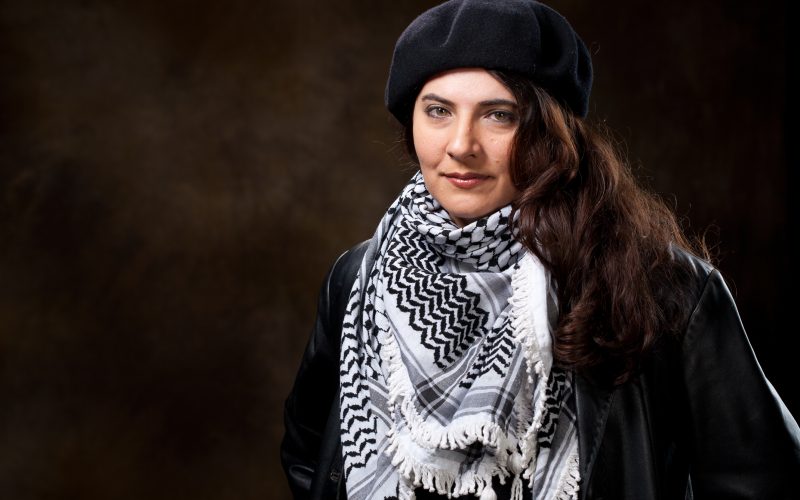
Courtesy Photo | Mohjah Kahf is this month’s featured speaker for the Ozark Poets and Writers Collective reading at Nightbird Books, 7 p.m. Tuesday, Jan. 31.
It will be a homecoming of sorts Tuesday evening when poet and activist Mohja Kahf takes the podium at Nightbird Books to read from her latest work, Hagar Poems. A long-time contributor to the Fayetteville lit scene and, in particular, to Ozark Poets and Writers Collective, Kahf traces her involvement with the group back to its days at Gaylord’s and Common Grounds.
Now that the monthly reading takes place in the cozy nook behind Fayettechill makes no difference to Kahf. New venue, but same old hospitality.
“I’m going back home to read at OPWC,” she said.
Born in Syria, Kahf is a professor of comparative literature and Middle Eastern Studies at the University of Arkansas. In addition to Hagar Poems, published last year by the University of Arkansas Press, Kahf is the author of E-mails from Scheherazad, The Girl in the Tangerine Scarf, and Western Representations of the Muslim Woman: From Termagant to Odalisque.
Kahf is the featured poet Tuesday, Jan. 31. The reading begins at 7 p.m. sharp and is free to the public. An open mic will take place before and after Kahf is featured. Food from Petra Café will also be available on a first-come, first-served basis. Copies of Hagar Poems will be available for sale.
In her review of Hagar Poems, writer Elisabeth Mehl Greene describes Kahf’s work.
“In a world where Islamophobia, hijabi Olympians, and burqini bans feature in everyday news, Arab-American poet Mohja Kahf’s new collection, Hagar Poems, is timely and relevant, delivering a clear-eyed vision of women in Islam,” Greene writes. “Avoiding a purely laudatory stance as well as the cliché of the oppressed Muslim woman, Kahf re-examines Islamic women’s stories, focusing much of her attention on figures in the Qur’an.”
Hagar Poems is a collection written over the course of 20 years. Many of the pieces were penned in the 1990s, but some were written shortly before publication. Hagar, the namesake of the book, is many things to many people, and is described by Kahf as “the ultimate single mother.”
Kahf has recently completed a new collection of poetry and hopes to have it published in the near future. She also hoped to teach an intersession course in May on Biblical figures in the Qur’an.



